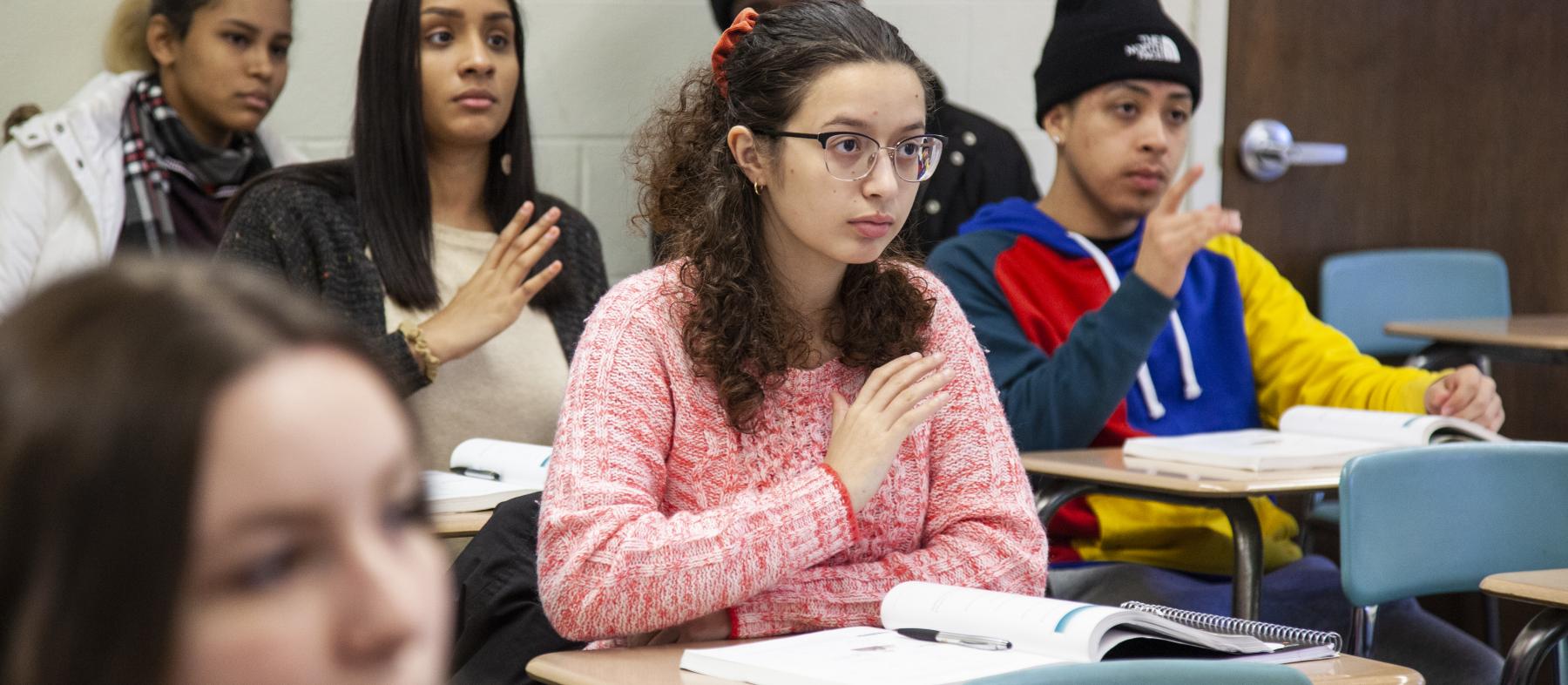The General Studies Program is unique in that it attempts to meet the academic needs of QCC career programs, four-year transfer institutions, and area employers. It has been designed to develop broad-based academic and employability skills. It provides a comprehensive, responsive, directed academic experience in which students identify educational and career choices, develop individualized career plans (CAPS), and implement career pathways leading to further education or careers. In addition, the QCC General Studies Program has articulation and transfer agreements with numerous colleges and universities. The General Studies Program allows students to tailor the selection or courses to meet the requirements of a transfer institution. It also provides students with the opportunity to tailor a program of study to meet specific professional/ career competencies.
Remember that all of the information contained on this site pertains to the most recent program requirements. Your requirements may differ because you must meet the requirements that were in effect when you entered the program. You may petition the Registrar if you wish to follow curriculum changes different from what you see in your degree audit.
Remember that in addition to the General Studies Program there are several options available in General Studies. You can find the description and the course requirements below.
Also, we have several additional links you will find useful:
Transferring to a 4-year college / University
We intend to make this website as useful as possible, please contact the General Studies Coordinator Marilyn Martin marilynm@qcc.mass.edu with ideas to improve the usefulness of this page.
Course Requirements
| Course and credit requirements | Notes |
|---|
English Composition & Literature I
(3 credits) | ENG 101 |
English Composition & Literature II
(3 credits) | ENG 102 |
College Algebra or
Topics in Mathematics or
Statistics (one course – 3 credits) | In order to meet QCC graduation requirements, learner must complete MAT 100, MAT 121, MAT 122 or any college level MAT course. In order to meet the requirements of MassTransfer, learner must complete MAT 121 or higher. |
Strategies for College & Career or
Self Assessment & Career Planning
(3 credits) | PSY 115 is recommended for students placing into ENG 100 or ENG 101. ORT 110 is recommended for students placing into ENG 090, ENG 091, ENG 095, ENG 096 or ESL courses. Students must complete either PSY 115 or ORT 110 prior to the completion of twenty credits in order to register for additional courses in the General Studies Program. |
Critical Thinking & Problem Solving
(3 credits) | HUM 101 |
Speech Communication Skills
(3 credits) | SPH 101 |
History Elective
(3 credits) | HST --- |
Behavioral Science Elective
(3 credits) | Behavioral Sciences involve seeking to discover general truths about human behavior. Courses with the following designations are considered Behavioral Science Electives:
Anthropology (ANT)
Psychology (PSY)
Sociology (SOC) |
Program Electives
(4 courses - 12 credits) | Program Electives are:
a. Courses with the objective of preparing students for a specific occupation or semester of occupations.
b. Courses that have been recommended based upon the student’s Academic and Career Plan.
c. Courses that meet developmental, core, or general education requirements are not program electives. |
Humanities Elective
(two courses – one must be 200 level – 6 credits) | The Humanities courses present knowledge concerned with humanity and world culture: philosophy, literature, and the fine arts. These arts are distinguished from the sciences and are produced or intended primarily for beauty, not utility. Sculpture, painting, drawing, architecture, literature, drama, music, and dance are examples of such expressions. Courses with the following designations are considered Humanities Electives:
American Sign Language (ASL); Art excluding Interactive Media courses (ART); English (ENG); French (FRC); German (GER); Humanities (HUM); Music (MUS); Philosophy (PHI); Spanish (SPN); Speech (SPH) |
Laboratory Science Elective
(two courses – 8 credits) | Electives that are specifically designated as Lab Science Electives require a science that includes lab, which are all 4 credit courses. Four credit courses with the following designations are considered lab science electives Biology (BIO) (excludes BIO 140); Physics (PHY); Chemistry (CHM); Science (SCI) |
Social Science Elective
(two courses – 6 credits) | All the social sciences are concerned with the study of people and their behavior, both individually and as a member of groups, nations, cultures and societies. Courses with the following designations are considered Social Science Electives: Anthropology (ANT); Economics (ECO); Geography (GEO); History (HST); Political Science (PSC); Psychology (PSY); Social Science (SOS); Sociology (SOC) |
| Elective (two courses - 6 credits) | Any college level course qualifies as an elective, and a student may enroll in any college level course for which s/he meets the prerequisites. |

